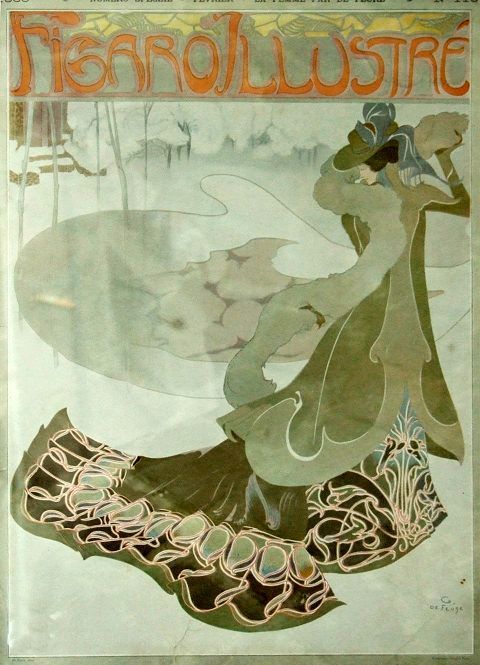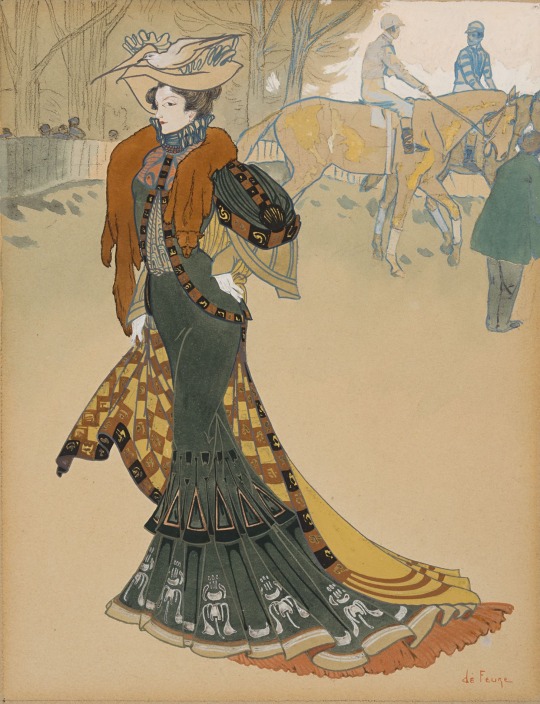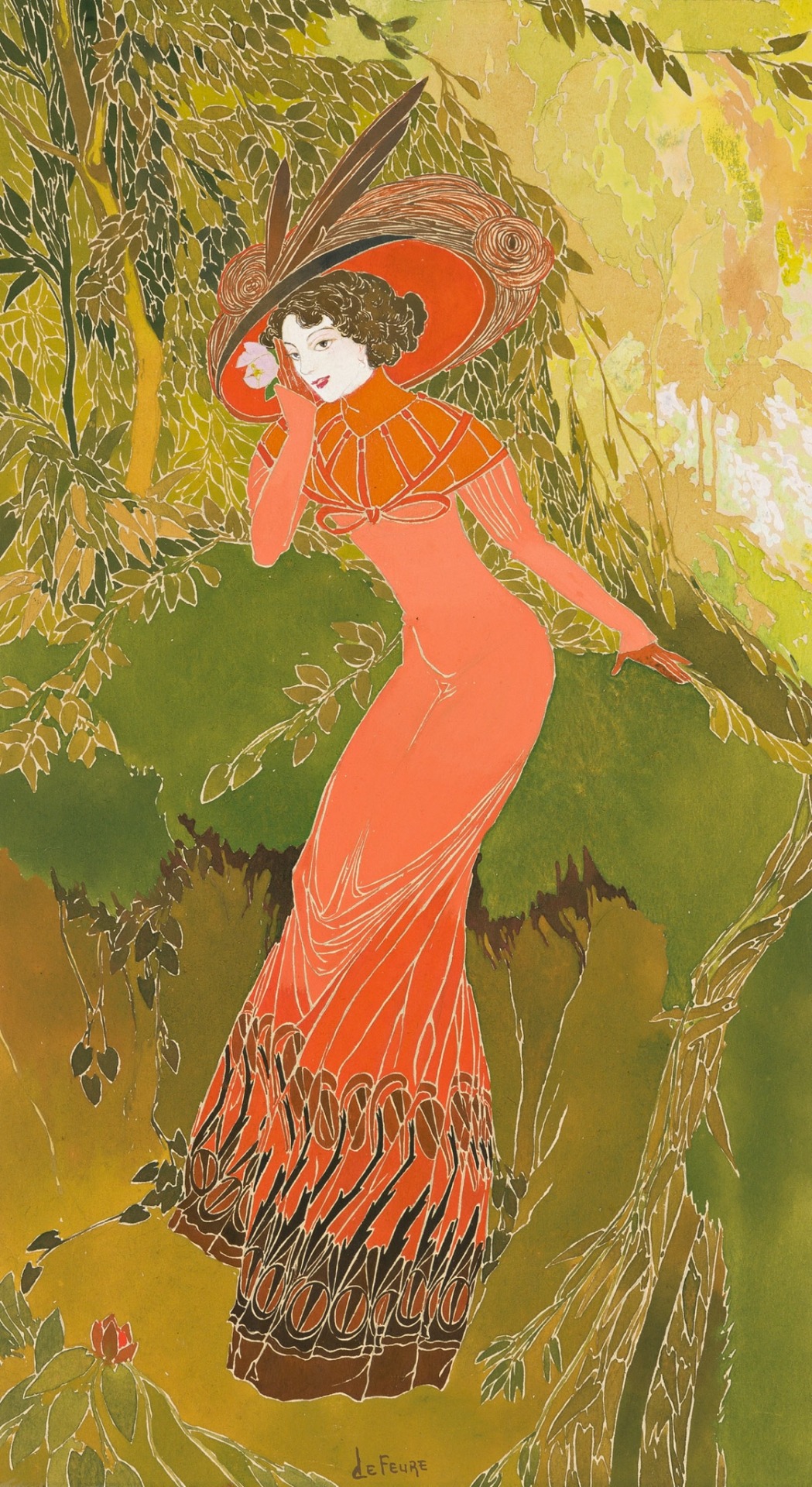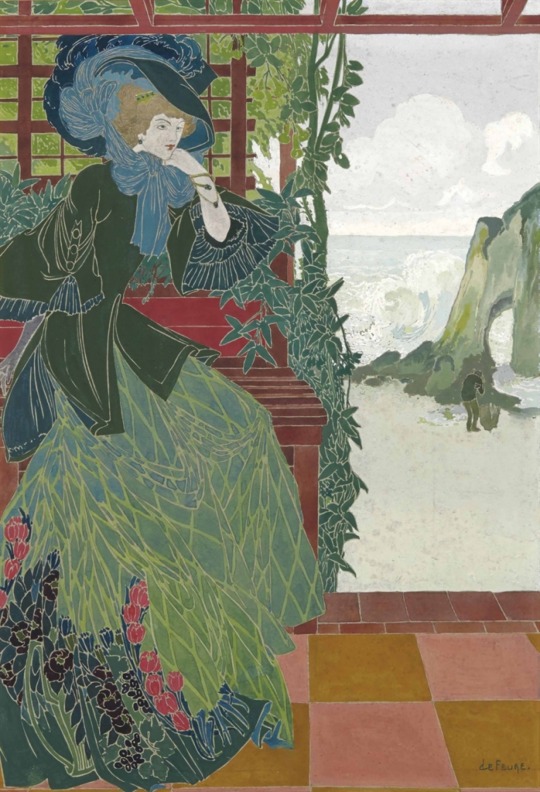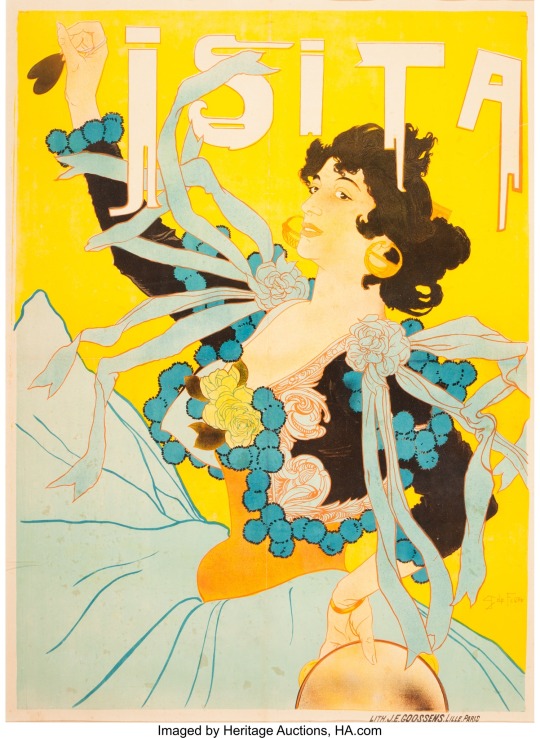#georges de feure
Text
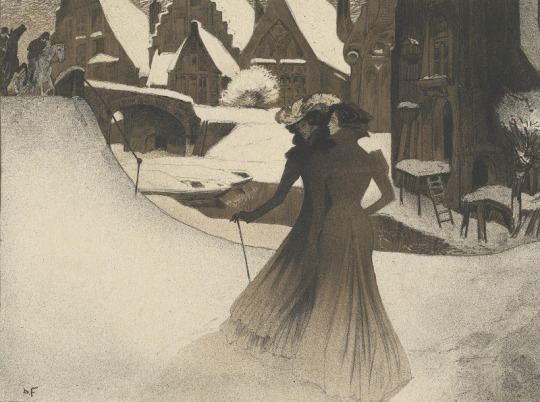
Georges de Feure - Print from the series Bruges mystique et sensuelle (1899)
1K notes
·
View notes
Text
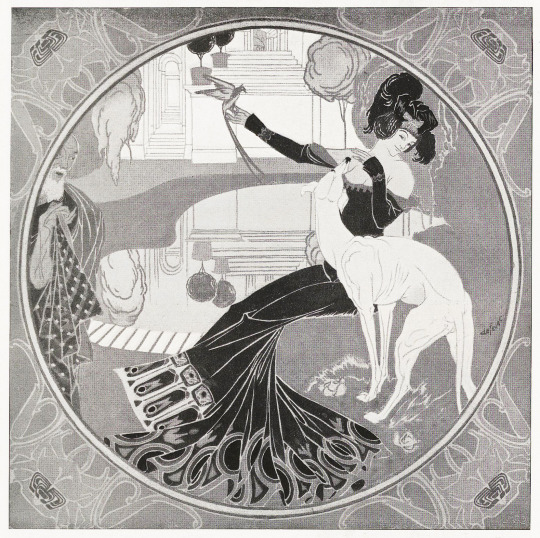
Georges de Feure (1868-1943), 'Versuchung' (Temptation), ''Deutsche Kunst und Dekoration'', Vol. 12, 1903
Source
#georges de feure#french artists#versuchung#temptation#Deutsche Kunst und Dekoration#vintage illustration#vintage art#art nouveau
75 notes
·
View notes
Text


Georges de Feure Covers for Cocorico, 1890s
120 notes
·
View notes
Text
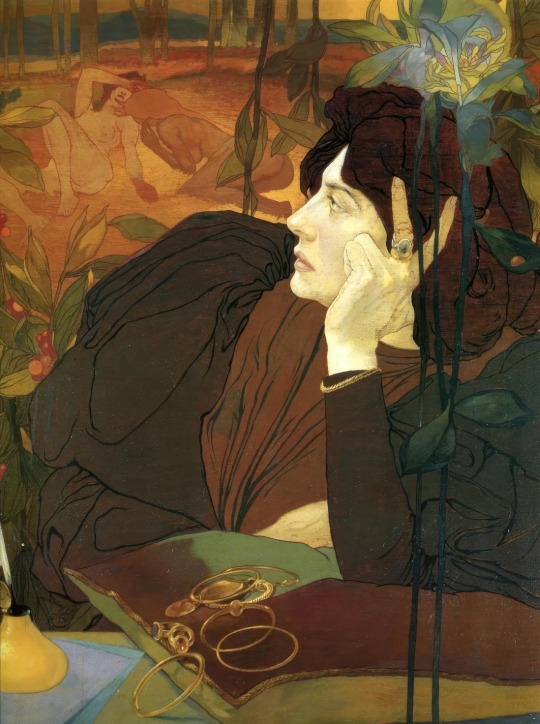
The Voice of Evil (Georges de Feure, 1895)
62 notes
·
View notes
Text
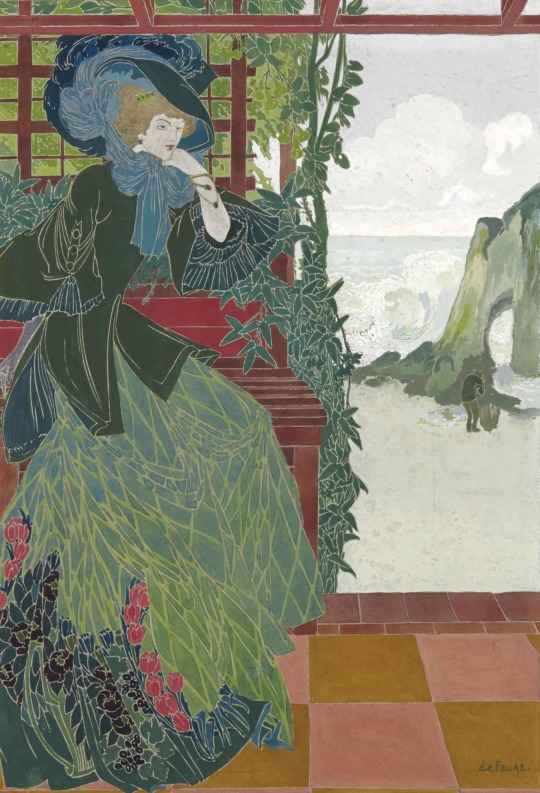
L'élégante à l'Aiguille Creuse
Georges De Feure
82 notes
·
View notes
Text

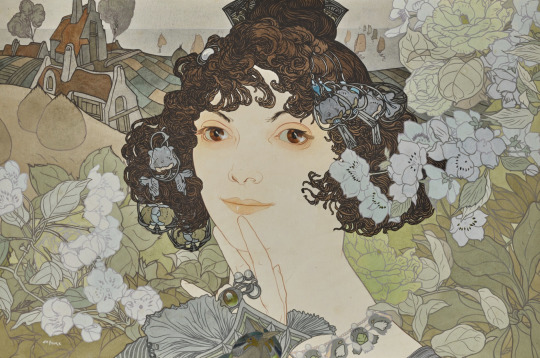
Georges de Feure
Experience or Vice and Innocence or Virtue
11 notes
·
View notes
Photo

Winter Landscape with Skaters (c1920) by Georges de Feure
79 notes
·
View notes
Text

Georges de Feure (French, 1868–1943) - The Seekers of Infinity
* * * *
“Our existence is but a brief crack of light between two eternities of darkness.”
- Vladimir Nabokov
[Guillaume Gris]
10 notes
·
View notes
Photo
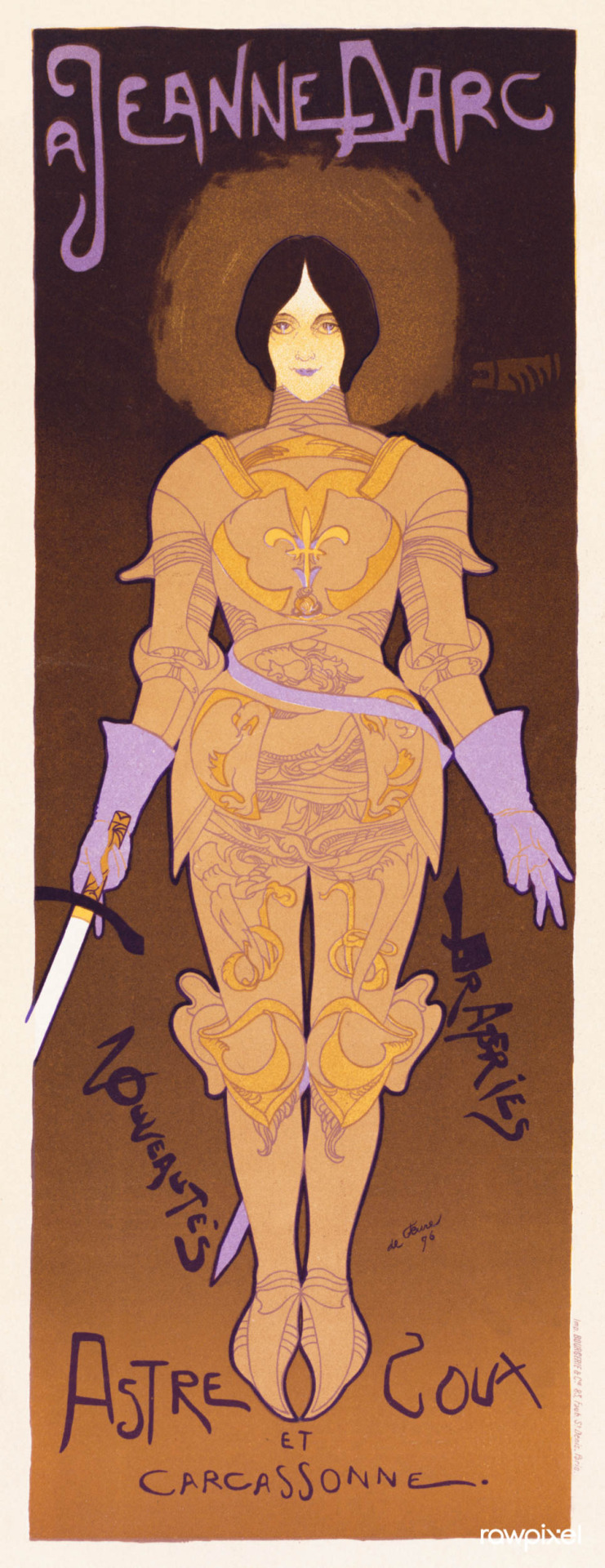
Joan of Arc by Georges de Feure (1898)
By class Joan was the daughter of a working farmer who was one of the headmen of his village, and transacted its feudal business for it with the neighbouring squires and their lawyers. When the castle in which the villagers were entitled to take refuge from raids became derelict, he organized a combination of half a dozen farmers to obtain possession of it so as to occupy it when there was any danger of invasion. As a child, Joan could please herself at times with being the young lady of this castle. Her mother and brothers were able to follow and share her fortune at court without making themselves notably ridiculous. These facts leave us no excuse for the popular romance that turns every heroine into either a princess or a beggar-maid. In the somewhat similar case of Shakespear a whole inverted pyramid of wasted research has been based on the assumption that he was an illiterate laborer, in the face of the plainest evidence that his father was a man of business, and at one time a very prosperous one, married to a woman of some social pretensions. There is the same tendency to drive Joan into the position of a hired shepherd girl, though a hired shepherd girl in Domrémy would have deferred to her as the young lady of the farm.
The difference between Joan's case and Shakespear's is that Shakespear was not illiterate. He had been to school, and knew as much Latin and Greek as most university passmen retain: that is, for practical purposes, none at all. Joan was absolutely illiterate. 'I do not know A from B' she said. But many princesses at that time and for long after might have said the same. Marie Antoinette, for instance, at Joan's age could not spell her own name correctly. But this does not mean that Joan was an ignorant person, or that she suffered from the diffidence and sense of social disadvantage now felt by people who cannot read or write. If she could not write letters, she could and did dictate them and attach full and indeed excessive importance to them. When she was called a shepherd lass to her face she very warmly resented it, and challenged any woman to compete with her in the household arts of the mistresses of well furnished houses. She understood the political and military situation in France much better than most of our newspaper fed university women-graduates understand the corresponding situation of their own country today. Her first convert was the neighboring commandant at Vaucouleurs; and she converted him by telling him about the defeat of the Dauphin's troops at the Battle of Herrings so long before he had official news of it that he concluded she must have had a divine revelation. This knowledge of and interest in public affairs was nothing extraordinary among farmers in a war-swept countryside. Politicians came to the door too often sword in hand to be disregarded: Joan's people could not afford to be ignorant of what was going on in the feudal world. They were not rich; and Joan worked on the farm as her father did, driving the sheep to pasture and so forth; but there is no evidence or suggestion of sordid poverty, and no reason to believe that Joan had to work as a hired servant works, or indeed to work at all when she preferred to go to confession, or dawdle about waiting for visions and listening to the church bells to hear voices in them. In short, much more of a young lady, and even of an intellectual, than most of the daughters of our petty bourgeoisie.
—George Bernard Shaw, Saint Joan
14 notes
·
View notes
Text
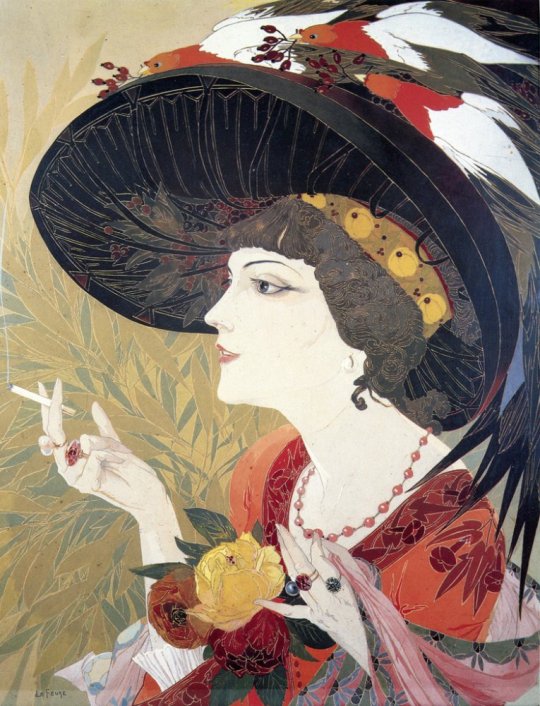
Georges de Feure - La Fumeuse (1908-1910)
218 notes
·
View notes
Text
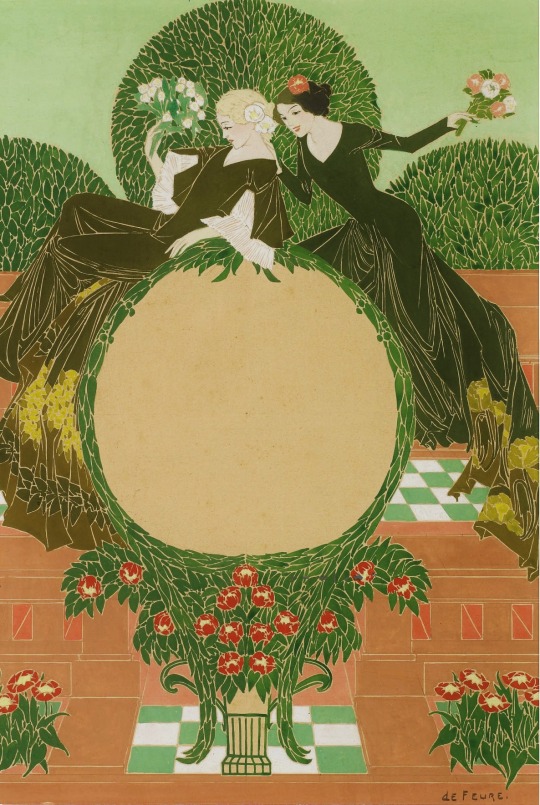
Georges de Feure (1868-1943)
#georges de feure#mdpillustration#19th century#late 19th century#early 20th century#20th century#france#illustration#20th c. france#19th c. france#undated
117 notes
·
View notes
Text

Georges de Feure La Fumeuse 1908-10
#Georges de Feure#french#illustration#drawing#art#fav#dyp#woman#secession#art nouveay#art nouveau#my uploads#cigarette#i l0ve bird on her hat#hands
21 notes
·
View notes
Text

5 notes
·
View notes
